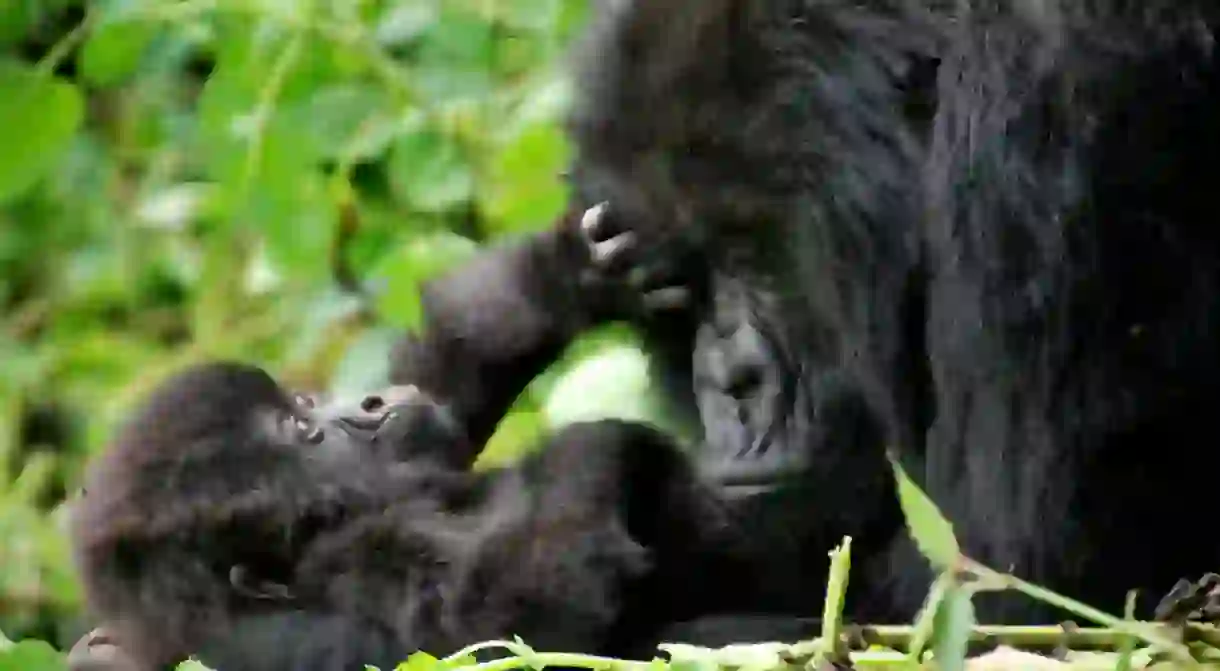Is Rwanda's Rising Luxury Tourism Actually Benefitting Locals?

It’s no secret that Rwanda is well on its way to becoming one of the most desirable tourist destinations in Africa. Major publications worldwide have lauded the country’s clean city streets, lush volcanoes, playful gorillas, and, most recently, the new luxury lodging options. As luxury tourism is undoubtedly on the rise, it begs the question – is Rwanda’s focus on luxury actually benefiting local Rwandans?

Mountain gorillas are Rwanda’s key draw, as there are approximately 880 mountain gorillas left in the world, earning them a spot on the World Wildlife Fund’s critically endangered list. They are located only in Rwanda, Uganda, and the Democratic Republic of Congo, and Rwanda specifically has done an unbelievable job at gorilla conservation. Tourists are able to visit specific gorilla families daily, with a limited number of gorilla trekking permits in Volcanoes National Park available. Until recently, these permits were $750 USD for foreign visitors, but have since been raised as of May 2017 to $1,500 USD for everyone. Previously, Rwandan citizens were able to go gorilla trekking for approximately $35 USD. These price increases might be unremarkable, except for the fact that luxury lodging has also cropped up around the country. With the recent openings of the Marriott, Radisson Blu, Bisate Lodge, and Nyungwe House, more and more international luxury tour operators are launching, and Rwanda is becoming known as a luxury-oriented destination.
“The tourists I work with are not as interested in coming to Rwanda anymore.” Jaques*, a young tour operator based in Kigali, spoke of the backpackers and young people he once ferried from Kigali to the volcanoes. He noted the challenges he has faced in getting clients since Rwanda’s shift to luxury tourism, saying, “It’s cheaper now for them to go to Uganda or Congo.”
Several midrange Rwandan tour companies have already begun to operate in surrounding countries. Janiver Cyubahiro, the managing director at A Step Into Nature Tours, has recently expanded his offerings to include gorilla trekking in Uganda’s Bwindi Impenetrable National Park. Gorilla trekking is much cheaper there, with permits available for $600 USD regularly and $450 USD during April, May, and November for rainy season. When asked why he opened a new office there, Janiver noted that “the increase in gorilla permits has slowed down business” in Rwanda.
This all being said, with rising tourism prices and Rwanda’s clean and anti-corruption reputation, the Rwandan government should be able to put more money into local communities, infrastructure, education, and countrywide development. Jacques acknowledged this, while also noting that “even as the influx of money helps Rwanda, people are nervous about Rwandan tourism businesses being left behind.” And, unfortunately, Rwandans themselves will also have much less of a chance than wealthy visiting tourists to see the mountain gorillas their own country is so famous for, as the price increase did not account for Rwandan citizens. Opportunities, according to Jacques, for Rwandans to actually participate in the tourism industry – both as in-country tourists and tour operators – will continue to decrease as everything gets more expensive across the board, and international agencies such as Wilderness Safaris, One&Only Resorts, Volcanoes Safaris, and Governor’s Camp become the primary operating tour companies in the country.

On the bright side, this change should lead to more of a focus on the rest of the country for budget and mid-range travelers. As mentioned by Janvier, though gorilla trekking is now out of the question for many, non-luxury travelers in Rwanda can “opt [to visit] Nyungwe National Forest, Akagera National Park, Gisenyi, and the volcanoes.” There is much to do and see in this beautiful country, regardless of the gorilla and luxury increases. Speaking hopefully, Jacque noted, “People will still visit.” Whether Rwandan communities will indeed benefit from the upmarket tourism industry, however, remains to be seen.
*Name has been changed.













